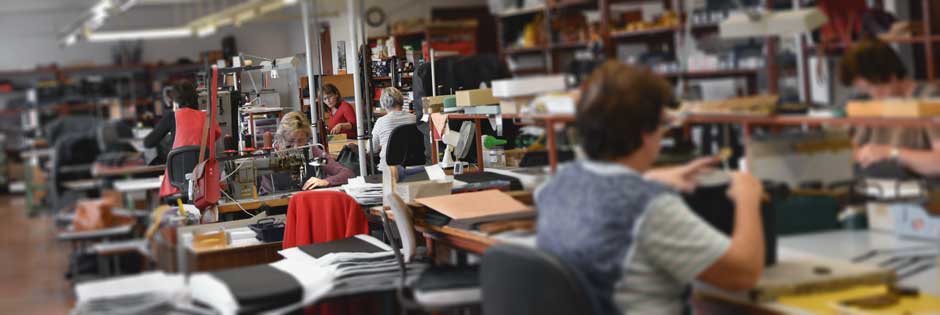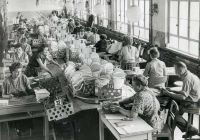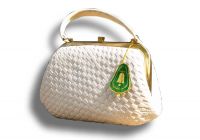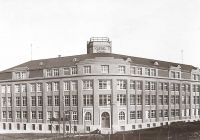1952 – Establishment of the leather goods factory in Apolda as a publicly owned company. In its infancy the company’s main business was processing leather substitutes and artificial leather. But before long more than 600 employees were producing high quality, 100% leather products for export.
1969 – As a leading manufacturer of handbags, city bags and travel bags, the Apolda leather goods factory was responsible for another 120 production sites. The bags with the “Glockensiegel” were exported to 18 countries including the Soviet Union, Switzerland, Sweden and Kuwait.
1975 – The socialist planned economy required the master craftsmen and engineers to come up with creative solutions to be able to further increase production despite shortcomings. The company was able to showcase its high-quality products at the leather goods trade fair in Offenbach and conclude numerous supply contracts. 70 percent of the products were for export, 40 percent alone to West Germany for Neckermann and Adidas.
The product range was constantly expanded, including the production of car headliners for all “Wartburg” and “Trabant” cars.
1990 – After the political transition it was soon clear that the company couldn’t survive without its own distribution channel, brand name and equity. An investor was sought and found. When the company was transferred to Michael Cromer in 1991, the company became one of the four main production sites for MCM. The luxury goods manufacturer MCM invested approximately two million Deutsch marks in technological refinements, including state-of-the-art special machinery and a model studio for CAD-supported pattern making.
2002 – Change of company management. Ingo Treu becomes managing director.
Today the company focuses on project-specific manufacturing for various high-end brands.




